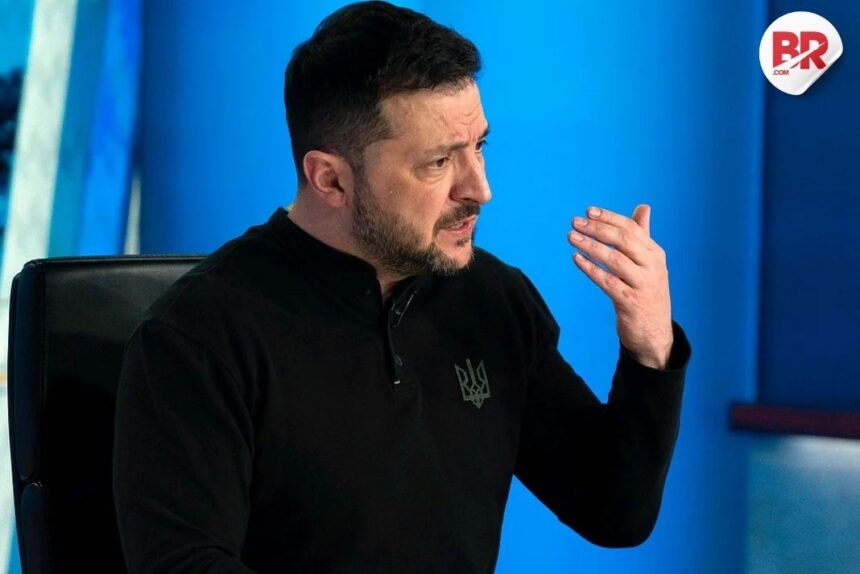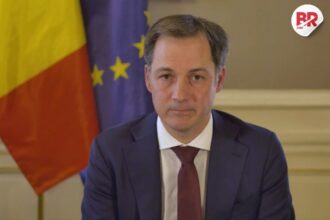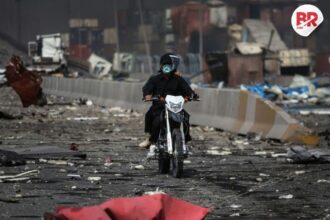
Zelensky says Ukraine just destroyed 40 Russian warplanes in a single strike—and yes, it’s a big deal.
On Sunday, President Volodymyr Zelensky praised a bold military move dubbed Operation Spiderweb—a massive drone strike deep inside Russian territory that destroyed over 40 combat aircraft and dealt a serious blow to Russia’s aerial dominance.
The operation, executed by the Ukrainian Security Service (SBU), targeted key air bases used by Russia to launch attacks on Ukraine. It was one of the largest drone attacks in the history of the war.

The operation in numbers:
Let’s break it down:
- 117 drones were used, each with a dedicated operator.
- The targets included multiple air bases spread across three Russian time zones.
- Over 34% of Russia’s strategic cruise missile carriers at these airfields were destroyed or damaged.
- The operation was coordinated from a location right next to an FSB headquarters in one of the Russian regions. Yes, seriously.
And all the Ukrainian personnel and collaborators involved in the mission? Already safely evacuated from Russian territory before the first drone even launched.
“It is genuinely satisfying when something I authorized a year and six months ago comes to fruition,” Zelensky posted on X, calling the mission “brilliant” and “justified.”
Head of the Security Service of Ukraine Vasyl Maliuk delivered a report regarding today’s operation. An absolutely brilliant result. A result achieved solely by Ukraine. One year, six months, and nine days from the start of planning to effective execution. Our most long-range… pic.twitter.com/oN41NFYyfw
— Volodymyr Zelenskyy / Володимир Зеленський (@ZelenskyyUa) June 1, 2025
This wasn’t just about planes—it was about timing.
Operation Spiderweb took place just one day before Ukraine and Russia were scheduled to meet for peace talks in Istanbul. That timing wasn’t a coincidence—it was a message.
Ukraine is not begging for peace from a position of weakness. Instead, it walked into the talks after burning dozens of Russian jets into scrap metal.
Meanwhile, Russia’s not slowing down either.
According to Zelensky, just hours before Operation Spiderweb, Russia launched nearly 500 attack drones toward Ukraine. That’s on top of Kalibr cruise missiles now being loaded onto naval carriers.
“Each week, they increase the number of units used per strike,” Zelensky warned, urging civilians to heed air raid alerts and stay cautious.
A ceasefire offer was already on the table—but Putin walked away.
Ukraine had accepted a U.S.-backed ceasefire proposal back in March, but Russia rejected it. Zelensky made it clear: Ukraine didn’t start this war, but it’s ready to finish it on its own terms.
“The Russians chose to continue the war—even when the world is asking them to stop. Pressure is needed. Military, economic, diplomatic. All of it,” Zelensky said.
So, what’s next?
Zelensky hinted that Operation Spiderweb is just the beginning of a broader campaign to weaken Russian military capabilities.
“We will continue this work,” he said, adding that Ukraine’s forces are prepared to take action wherever necessary.
One thing’s clear: this was a tactical flex—and a political one.
Spiderweb wasn’t just about military gain. It showed that Ukraine can strike deep, with precision, coordination, and confidence. It also reminded the world—and especially Russia—that Ukraine still gets the last word.
Also Read U.S. Companies Face Problems Returning to Russia Even If Peace Comes After Ukraine War












